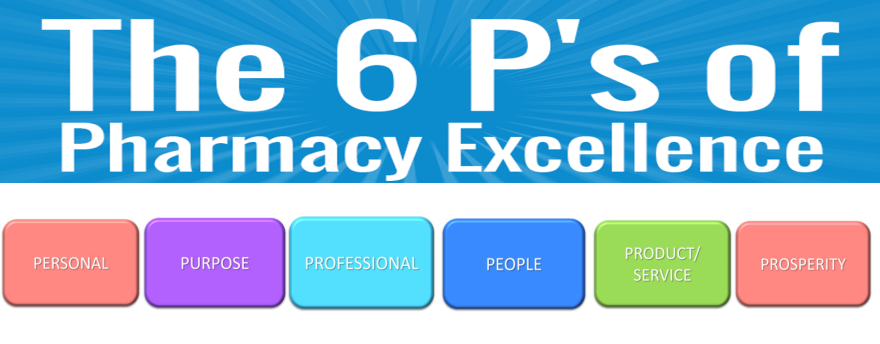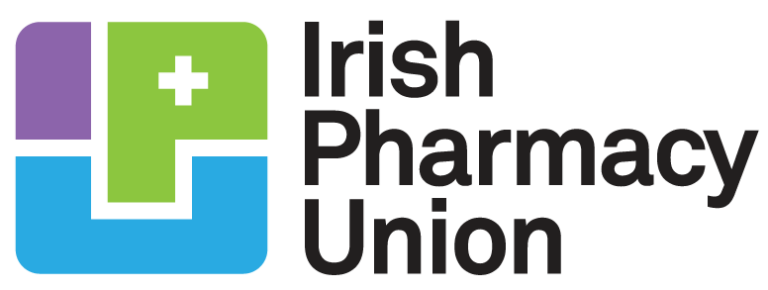Personal Note from Rachel

Positive Practice In the News | FIP, RPS, PSI, IPU
As pharmacists, we are not uniquely disadvantaged, unseen, unheard and under-valued. I have the privilege of working with clients across several sectors. Anecdotally, the challenges that my coaching clients grapple with from non-healthcare sectors often align strongly with the challenges my pharmacists and healthcare colleagues grapple with. In all cases, the importance of Positive Workplace Environments and the consequences of Negative Workplace Environments is evident and that evidence has been in the news recently in pharmacy, healthcare and globally.
For example, Gallup's recent multi-industry 'State of the Global Workplace Report 2023' found that the majority of the world's employees are 'quiet quitting,' with only 23% of global employees engaged at work, with only 11% of Irish employees are engaged. What did this survey find is the number one contributor to employee engagement or disengagement? 70% of team engagement is attributable to their manager. This is EXCELLENT news, because if you are, or aspire to be, a leader or manager, continually growing your capacity to create positive practice environments is within your control AND makes a significant difference in your practice.
In healthcare, the theme of positive practice environments also resonates. According to the World Health Organization and the World Health Professionals Association, there will be a global shortage of approximately 18 million health workers by 2030 – 20% of the workforce needed to keep healthcare systems going. They found countries at all levels of socioeconomic development face difficulties in attracting, motivating and retaining their healthcare workforce. Their recommendations to foster positive practice environments include:
- professional recognition and empowerment,
- leadership/management practices,
- occupational health and safety, and
- fostering a learning culture through effective professional development, mentoring and peer coaching programmes.
While aspects of these factors are not within our direct control, the EXCELLENT news is that several aspects can be impacted locally. Which means we do not have to wait to begin making the improvements that mean that our practice environments are more attractive, our team culture is more motivating and our professional retention rates climb.
In pharmacy, the International Federation of Pharmacists (FIP), the Pharmaceutical Society of Ireland (PSI) and the Royal Pharmaceutical Society (RPS) all published reports relating the workforce sustainability, wellbeing and sustainability, for World Pharmacists Day (25th Sept). In a healthcare system where multiple stakeholders want a piece of you, becoming consciously aware of our choice points, and taking wise action is a critical (but not easy) professional leadership skill. When we are constantly under pressure, it is extremely difficult to recognise what we can (and cannot) change and to have the energy to change it.
Indeed, there are several pharmacists I have coached who have initially sought coaching as they consider a career change out of pharmacy. They blamed the pharmacy profession for their negative experience of their professional practice and wanted out. However, as we partnered together, they agreed to test their hypothesis that their stress, overwhelm and dissatisfaction was caused by pharmacy. In all but one case, when they found work in another pharmacy, with a positive practice environment, their experience of the profession of pharmacy shifted and they realised that pharmacy was not the problem, but the negative work environment (which happened to be in a particular pharmacy) was, in fact, what they hated.
Leadership matters. The skill of the direct line manager really matters. Professional recognition and empowerment matters. Having a safe place to work (physical and psychological) matters. Opportunities to grow and develop matter. That is why I am passionate about supporting leaders, managers and their teams to continually grow and evolve, to create ever more positive practice environments, even in the midst of exponential change.
Leadership Development Coaching | An Irish Story 25@25
It is inspiring that Ulster University is not only embedding coaching as a cultural norm within the university itself, but that it is also partnering with ICF Ireland to enable coaching to be embedded as a core pillar of its flagship leadership development programmes. I am honoured to be selected as one of the Leadership Coaches for the 25@25 Leadership Programme for Young Leaders - Ulster University The programme tagline is 'We inherit our history. We choose our future.' is true for each of us. The programme is called 25@25 as twenty-five people, on the twenty-fifth anniversary of the Belfast Good Friday Agreement, have been selected to participate in the 25@25 programme designed to expand experiences, grow leadership capacity and build a long-lasting network of change-makers in Northern Ireland, who will create a brighter future than they inherited. I am looking forward to partnering as coach with one of these inspiring participants as they deepen their
- insight (deeper insight of themselves, others and situations)
- influence (ability to self-motivate, intervene and lead others)
- impact (lasting, positive change through leadership)
I look forward to meeting you in person at the IPU National Pharmacy Conference on 21st October, where Jonathon Morrissey and I present on ‘The Value of Having a Positive Pharmacy Practice.’

4Front’s 6Ps of Positive Practice focus on Mastering Six Inter-Connecting Factors – Purpose, Personal, Professional, People, Products & Services and Prosperity.
This Month's Focus: Bridging the Know-Do Gap -- Healthcare Leadership Coaching for Positive Practice

Introduction: In the rapidly evolving landscape of healthcare, leadership excellence isn't just a desire; it's a necessity. It's about being the best you can be, not only for yourself but for your team, your organisation, and, most importantly, your patients. It's about closing the gap between where you are and where you want to be. In this journey towards professional excellence, one invaluable resource stands out: Healthcare Leadership Coaching.
Why Healthcare Leadership Coaching Matters: Leadership coaching, particularly in the healthcare sector, plays a pivotal role in shaping the future of healthcare. It bridges the 'know-do' gap—the space between what healthcare leaders know, and how they apply that knowledge in their daily practices. It's a powerful conduit for transforming beliefs, knowledge, skills, and behaviours into actionable results.
The Science Behind Healthcare Leadership Coaching: The effectiveness of coaching in healthcare leadership isn't just anecdotal; it's backed by scientific research. Studies have demonstrated that coaching can significantly enhance leadership skills, emotional intelligence, and decision-making abilities. It's not a one-size-fits-all approach; rather, it's personalised, addressing the unique needs and challenges faced by each, individual healthcare leader and each unique team.
Risks of Neglecting Coaching in Healthcare Leadership: While coaching can propel healthcare leaders to new heights, the risks of neglecting it are equally profound. Without coaching, healthcare leaders may find themselves stuck in outdated practices, struggling to adapt to changes, and unable to inspire and lead effectively. In a field where decisions can be a matter of life and death, the stakes are high.
Practical Applications of Healthcare Leadership Coaching: Healthcare Leadership Coaching encompasses various approaches, each tailored to the individual needs of the leader. This can include core competency based coaching approaches, such as the International Coach Federation (ICF), which provide a structured and evidence-based approach. Positive Intelligence coaching focuses on enhancing resilience and mental fitness, essential qualities in healthcare leadership. Red Team Coaching helps leaders think critically, anticipate challenges, and develop robust strategies. As a multi-credentialed, award-winning healthcare leadership coach, who specialises in coaching pharmacy and healthcare leaders, helping them navigate the complexities of their roles, Rachel Dungan's coaching approach focuses on empowering healthcare leaders to:
- Clarify their vision for excellence in healthcare leadership.
- Identify and overcome obstacles hindering their growth.
- Enhance their decision-making, emotional intelligence, and adaptability.
- Develop a positive and resilient mindset.
- Bridge the 'know-do' gap by translating knowledge into effective action.
Conclusion: As with sporting teams, such as rugby, the pursuit of excellence in healthcare leadership, requires coaching as a strategic imperative (not a 'nice to have' when I have time/money/energy). It's the catalyst that transforms knowledge into action, empowers leaders to navigate challenges with their teams, and ultimately leads to improved patient outcomes. Healthcare Leadership Coaching offers a structured and personalised approach to address the 'know-do' gap. With skilled coaches like Rachel Dungan, healthcare leaders have a powerful ally on their journey towards professional excellence. So, if you're a healthcare leader looking to bridge that gap between where you are and where you want to be, consider the transformative power of healthcare leadership coaching. CLICK HERE to discover 10 Questions to Ask your Coach before Hiring Them, and Rachel's responses to these questions.
If you are ready to take the next step towards healthcare leadership excellence, I invite you to start by assessing your leadership skills and uncovering areas of excellence and areas for growth with our "4Front’s 6Ps of Professional Excellence Self-Assessment for Healthcare Managers and Leaders." This insightful tool will provide you with valuable insights to kickstart your path to (even more) positive practice.
Upcoming Events
 PHARMACISTS: I look forward to chatting with you and exploring the future of pharmacy at the IPU National Pharmacy Conference on 21st October, where Jonathon Morrissey and I present on ‘The Value of Having a Positive Pharmacy Practice.’ PHARMACISTS: I look forward to chatting with you and exploring the future of pharmacy at the IPU National Pharmacy Conference on 21st October, where Jonathon Morrissey and I present on ‘The Value of Having a Positive Pharmacy Practice.’
This conference is the first face to face conference since 2019 and will also mark the start of the celebrations of our 50th Anniversary of the IPU. The event will provide support to the pharmacy profession through an extensive programme of events, education sessions and ‘The Great Debate’. In our session, Jonathon and I will be exploring the benefits of positive pharmacy practice, the risks of negative pharmacy practice and pharmacists will learn and apply 4Front's ABCDE Framework for Strategic Practice Change, so that they can create their own growth plan to develop an increasingly positive practice.
 COACHES: On 16th November, from 1800-1930 Dublin/London time, I invite you to join me at the ICF's Coaching Super-vision Community of Practice, where I will be one of 30+ credentialed coaching super-visors welcoming you to experience coaching super-vision. The Gold Standard in Coaching | ICF - Communities of Practice (coachingfederation.org) COACHES: On 16th November, from 1800-1930 Dublin/London time, I invite you to join me at the ICF's Coaching Super-vision Community of Practice, where I will be one of 30+ credentialed coaching super-visors welcoming you to experience coaching super-vision. The Gold Standard in Coaching | ICF - Communities of Practice (coachingfederation.org)
Coaching Super-Vision is a form of professional reflective practice about client cases, designed to boost your capacity for self-observation during a session, and often involves pre-flection (before a session) and reflection (after a session). Attendees will have the opportunity to experience coaching super-vision by participating in breakout rooms. Each breakout room will be accompanied by a volunteer coach super-visor. This session will encourage coaches to consider how super-vision can contribute to their personal and professional development.
|